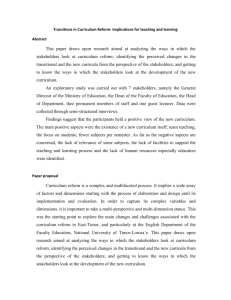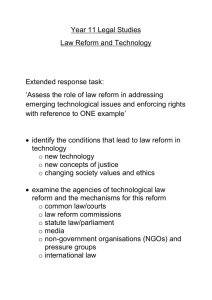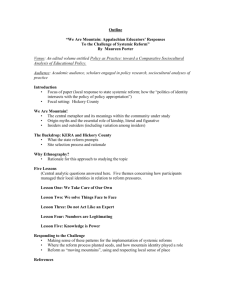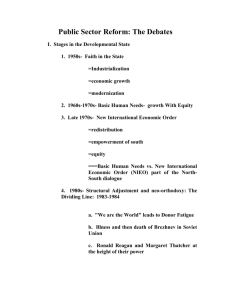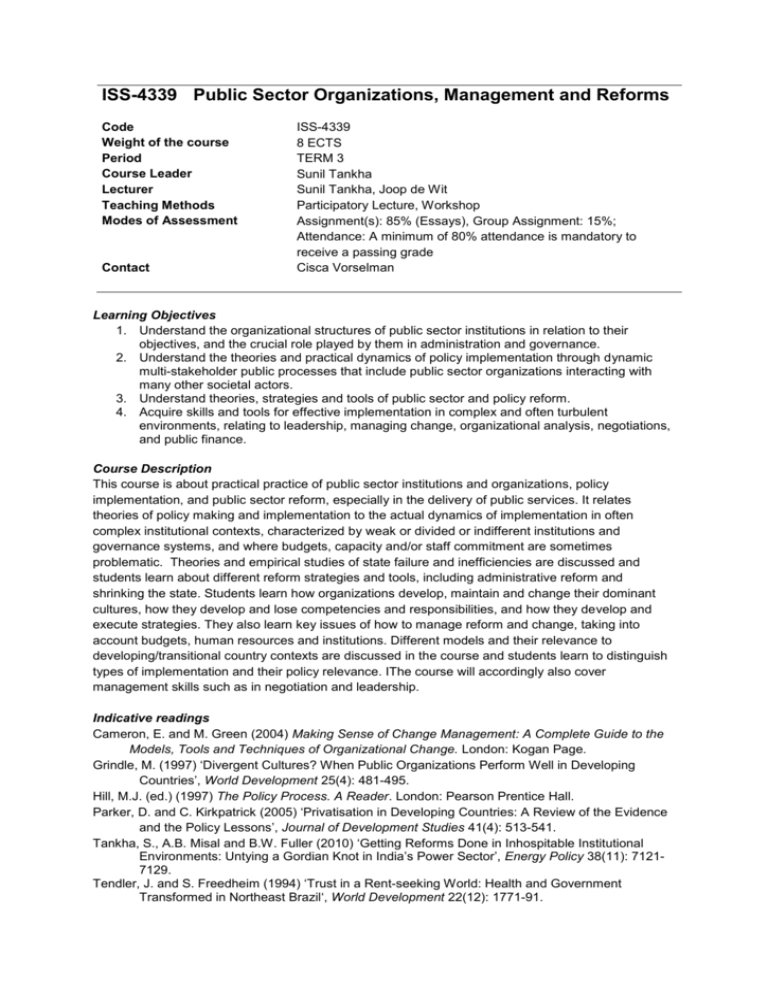
ISS-4339 Public Sector Organizations, Management and Reforms
Code
Weight of the course
Period
Course Leader
Lecturer
Teaching Methods
Modes of Assessment
Contact
ISS-4339
8 ECTS
TERM 3
Sunil Tankha
Sunil Tankha, Joop de Wit
Participatory Lecture, Workshop
Assignment(s): 85% (Essays), Group Assignment: 15%;
Attendance: A minimum of 80% attendance is mandatory to
receive a passing grade
Cisca Vorselman
Learning Objectives
1. Understand the organizational structures of public sector institutions in relation to their
objectives, and the crucial role played by them in administration and governance.
2. Understand the theories and practical dynamics of policy implementation through dynamic
multi-stakeholder public processes that include public sector organizations interacting with
many other societal actors.
3. Understand theories, strategies and tools of public sector and policy reform.
4. Acquire skills and tools for effective implementation in complex and often turbulent
environments, relating to leadership, managing change, organizational analysis, negotiations,
and public finance.
Course Description
This course is about practical practice of public sector institutions and organizations, policy
implementation, and public sector reform, especially in the delivery of public services. It relates
theories of policy making and implementation to the actual dynamics of implementation in often
complex institutional contexts, characterized by weak or divided or indifferent institutions and
governance systems, and where budgets, capacity and/or staff commitment are sometimes
problematic. Theories and empirical studies of state failure and inefficiencies are discussed and
students learn about different reform strategies and tools, including administrative reform and
shrinking the state. Students learn how organizations develop, maintain and change their dominant
cultures, how they develop and lose competencies and responsibilities, and how they develop and
execute strategies. They also learn key issues of how to manage reform and change, taking into
account budgets, human resources and institutions. Different models and their relevance to
developing/transitional country contexts are discussed in the course and students learn to distinguish
types of implementation and their policy relevance. IThe course will accordingly also cover
management skills such as in negotiation and leadership.
Indicative readings
Cameron, E. and M. Green (2004) Making Sense of Change Management: A Complete Guide to the
Models, Tools and Techniques of Organizational Change. London: Kogan Page.
Grindle, M. (1997) ‘Divergent Cultures? When Public Organizations Perform Well in Developing
Countries’, World Development 25(4): 481-495.
Hill, M.J. (ed.) (1997) The Policy Process. A Reader. London: Pearson Prentice Hall.
Parker, D. and C. Kirkpatrick (2005) ‘Privatisation in Developing Countries: A Review of the Evidence
and the Policy Lessons’, Journal of Development Studies 41(4): 513-541.
Tankha, S., A.B. Misal and B.W. Fuller (2010) ‘Getting Reforms Done in Inhospitable Institutional
Environments: Untying a Gordian Knot in India’s Power Sector’, Energy Policy 38(11): 71217129.
Tendler, J. and S. Freedheim (1994) ‘Trust in a Rent-seeking World: Health and Government
Transformed in Northeast Brazil‘, World Development 22(12): 1771-91.






